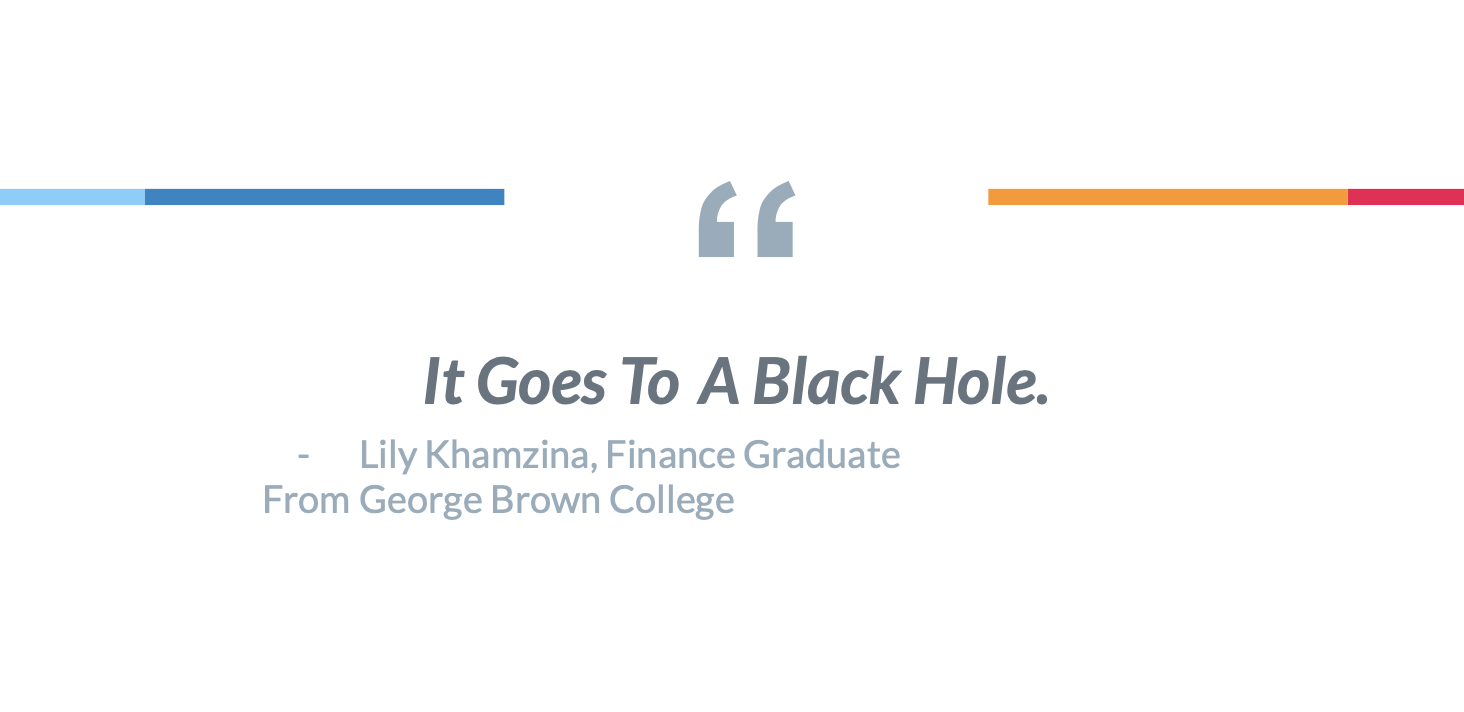Young Canadians are experiencing the highest rate of unemployment during the pandemic.
According to Statistics Canada, nearly one in five Canadians between the ages of eighteen to twenty-four are unemployed.
Millions of Canadians have lost their jobs because of the COVID-19 pandemic, with the current unemployment rate in Ontario over 9%. This time last year, the rate was just over half of that.

The COVID-19 spike in unemployment is leaving some young people wondering whether a pricey post-secondary education will pay off.
Lily Khamzina, an international student and recent graduate of George Brown College’s Finance program has been having trouble finding a job after she was laid off.
“Right now, I just apply with a resume and it goes to a black hole,” she says.
She doesn’t think that her bachelor’s degree is giving her enough of a leg-up, especially in an economy where even entry-level positions are scarce.
That’s left her feeling in a loop and unsure of where to go next. Before the pandemic, she’d pictured herself on her way to a business career, and on her way, to a permanent residency card.
Khamzina says her peers are dealing with the same frustration.
Since the recession in the late 2000s, the unemployment rate for Canadians aged eighteen to twenty-four has been twice the national average.
But from 2019 to 2020, the unemployment rate for people with post-secondary diplomas, certificates, and bachelor’s degrees more than doubled.
This is discouraging for Khamzina who feels she’s in fierce competition against other new graduates also trying to enter the workforce during economic downturn.
In The Meantime
Mikal Skuterud, a labour economics specialist and professor at the University of Waterloo says that unemployment statistics may not even be providing a real sense of how much young people are struggling during the pandemic.
Standard job loss statistics don’t account for young people who haven’t yet entered the workforce.
Skuterud says new graduates from college and university programs are experiencing troubles looking for jobs or being laid off because they haven’t established secure employment.
Not because their post-secondary accreditations have become useless in the job market.
In fact, he says that it’s possible degrees, diplomas, and certificates are even more valuable because of COVID-19. Even if it doesn’t feel that way now.
A large part of Canadian jobs lost due to the pandemic don’t require high levels of education. These are typically hourly-paid positions like servers and retail workers.
At the same time, higher-level skills have become more valuable as workplaces try to adapt to a world with less social contact. These include better familiarity with technology that will require some form of post-secondary education.
In the meantime, Skuterud suggests young people practice patience and take time off to further develop skills that will make them more employable.
He predicts the labour market will see gradual improvement, but some jobs may never return.
For young people, it isn’t about biding time until the job market gets “back to normal,” but preparing for change and learning to adapt to a world that won’t be the same after this pandemic.

Be the first to comment